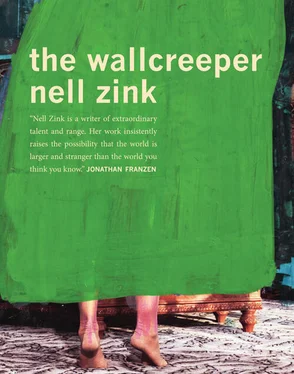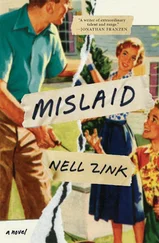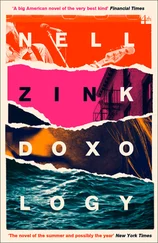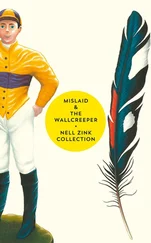Global Rivers Alliance would continue to be headquartered in Berne. George, the president, was paying rent to himself — never a bad idea for a small businessman — and Switzerland is a fine address for any charitable foundation, like a cross between Aspen and The Hague. Stephen would operate out of a defunct machine shop on a concrete slab on the east side of Berlin, sharing a table with other freelancers he’d never met. Imagining the marble floors and receptionist of the home office in Berne would help his visitors tolerate the sound of officemates slurping lattes and nattering away on video conference calls.
Stephen the underemployed non-birder was a lonely person.
Secretly he was working to create majestic panoramas of mud where birds could plunge their beaks to just shy of the eyeballs, but all he ever talked about was wind, solar, and the need to invest in a smart power grid. His emotional detachment from his talking points made him strident.
He had been right about one thing. GRA’s main line item was his opportunity cost. Birke wanted to reissue the Wasserkraft Nein Danke posters tinted red as a cascade of foaming blood. According to Birke, blood was trending with young people (vampires), plus it was time for a knockout punch.
If he had still been working in Berne, he could have printed and distributed the red posters with his pocket money whether George liked them or not. Now they had to sell their ideas, not give them away, and in the creativity glut that was Berlin, not even George was buying.
Our place in Berlin was several hundred yards from party central, meaning roughly speaking the Kottbusser Tor subway station. We lived on the ground floor in the back, with access to the street through a massive wooden gate.
Our windows looked out on a muddy courtyard. The loveless gray coating of cement that had been slapped on the brick wall opposite was corroding to a height of fifty feet. Above that, it had flaked off entirely, leaving the clumsy, gap-filled brickwork disconcertingly bare all the way to the sky. When I leaned my head out the window and looked up, I could see a bit of blue, on nice days.
Outside the gate was a playground where teenagers drank vodka day and night. It opened on to a park that faced a bridge over a canal. The youth of many nations gathered on the bridge to play guitars and drums at all hours. We felt lucky to be in the back, except when the youth of many nations found our gate ajar and slipped inside to take a shit.
Our apartment was both larger and more modern than the one in downtown Berne. But perceptions are relative. Berlin was known for high-ceilinged rentals dating from the turn of the second-to-last century that reflected the tastes of an ascendant middle class. It lacked quaint medieval niches like our place in Berne. We had a third-tier proletarian’s apartment, and it felt like the tenement it was. Dim and dank, with uneven walls. I counted forty-four bicycles in the morass below our windows, some tightly bound to the drainpipes with clematis. Under them were plastic toys that would outlast the building next door by millennia.
My budget was a little different than it had been in Berne, but Stephen let me buy paint. For several days he swore to refrain from buying maxi singles, before he remembered that DJing is a way to make money.
In spring the flies returned in force. They were a constant presence all winter. The courtyard had three large garbage cans for bio-trash. The lids were irreparably crooked and the neighbors were — I don’t know whether inebriated or simply careless — somehow not in command of their actions, so that the ground around them was strewn with banana peels and melon rinds. When the temperature dropped below freezing, the compost froze solid and couldn’t be emptied, and when the temperature rose the maggots swarmed.
I am proud (as a housewife) to say that I don’t know whether Rudi ate flies. But the combination of high wall, missing bricks, and bugs made me think he could have made a home with us, had he lived and Berlin been at 15,000 feet.
My German was getting better, and I met people. I learned that I wasn’t a feminist. Even men in their seventies, talking to me after meetings about an impending block party or the proper sorting of garbage, would raise their eyebrows when I said I had followed my husband from Philadelphia to Berne and then Berlin. I couldn’t come up with a step I’d taken in life for my own sake. On my own behalf, to make myself happy, I’d done all kinds of things, all of them with the aim of staying close to a man. It hadn’t occurred to me to be ashamed of myself. I’d thought love was a socially acceptable motivation. But to right-thinking Germans, I was a mindless whore, and historically I had never felt more normal than in the company of other mindless whores (e.g., Elvis).
I met someone who was the right kind of wife. Her husband played trumpet in a ska outfit whose contrabass player sometimes improvised to Stephen’s minimal drive-by or whatever it was called that week. When I met her she had a kid on her shoulders and a baby on the ground at her feet, and she was talking gaily about India with a vendor of Indian junk at the flea market. The vendor was impressed, and I, too, was impressed. She was young the way an actual young person is young. Not like weary, defeated Stephen and me. She confirmed my suppositions about her sterling qualities as a wife by inviting me for coffee and serving a cake she had baked herself using yeast. I never did understand yeast.
Like me, she had moved to Berlin to be with her husband. The key difference was the kids. I envied her with a pang. An educated woman with little kids (I didn’t imagine her having acquired them by any other means than hot sex) is a model of feminist, as well as feminine, virtue. Even her struggle to get strangers to take the kids off her hands is a feminist cause. Her work, bringing up the model citizens of tomorrow, is something society feels it ought to value and is constantly proposing as potentially eligible for pension benefits, unlike my work, which neither involved actual labor nor was anything but an end in itself, on good days, and otherwise not even that.
The next time we had coffee, she said she had been a Slavic languages major at an international program in Krakow and abandoned her studies when the first baby came. That was about nine months after Hermann’s band played Krakow. She had barely remembered him, but she looked him up online. She hadn’t planned to drop out, but it was absolutely impossible to be an adequate mother and have a life, she said. She didn’t resent her children. She said they were every bit as interesting as verbs.
Olaf, the harmless man, e-mailed the Global Rivers Alliance info-address to invite us to a slide lecture on storks at a NABU meeting in Pankow.
Stephen said, “This might interest you. Everyone else on the planet over the age of twelve has something better to do with their time.”
My emotions at the prospect of seeing Olaf could best be described as ecstatic moping.
It was quiet out in Pankow. I could hear chickadees chirping as I stumbled over the cobblestones. When Olaf saw me, he smiled.
I probably projected a sense of relief. I had been half expecting him to arrive with Birke on his arm and her name tattooed on his neck. “It’s great to see you!” I said.
“It’s great to see you!” he said, turning away to shake someone’s hand.
I felt: He knows I have a crush on him, he knows I know about his thing with Birke, he knows it hurts me, and he knows I don’t hold it against him. In short, he knows I’m desperate, yet submissive, and that he can do anything he wants with me, especially ignore me. I stood there with a lost look, feeling as though I had been ordered and not picked up, as the Germans say.
Читать дальше
Конец ознакомительного отрывка
Купить книгу










